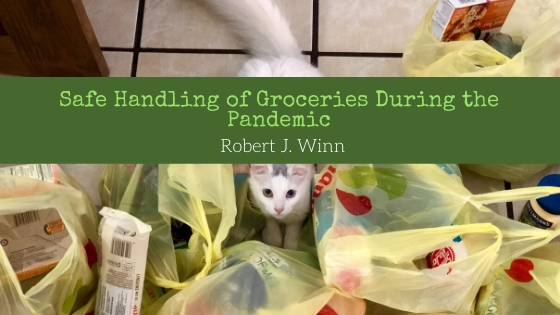Most individuals in the U.S. are concerned about being exposed to the COVID-19 virus, and rightly so. This worry has led to a significant uptick in the number of people going the buying groceries online route as opposed to in-store shopping. In fact, a recent Business Insider survey estimated that by the end of June, 43% of U.S. consumers will have purchased groceries online. For those who have this option, it seems to be yet another reasonably safe measure they can take to self-isolate and protect themselves. For those who must venture out to a physical store, carrying and using disinfectant wipes, maintaining social distance, wearing a mask, not touching your face, and washing your hands are considered a necessity. However, you acquire your groceries during the pandemic though, there are some additional precautions you should take when bringing them into your home.
If you are having groceries delivered to your door, use the online tipping option, so you eliminate contact with the delivery person. Request a no-contact drop-off and wait until the delivery driver has left before going to retrieve your groceries.
While handling newly delivered groceries, avoid touching your face. Once you’ve brought your groceries in, wash your hands thoroughly with soap and water for at least 20 seconds. Next, wipe down non-porous containers like glass, plastic, and aluminum with disinfectant wipes.
“COVID-19 can live on cardboard surfaces for up to 24 hours,” according to a recent study in the New England Journal of Medicine. So when it comes to other packaging, where feasible, remove items from the original packaging and place the items in your own containers and dispose of the original packaging.
It’s long been recommended to rinse off fresh fruits and vegetables before eating them and to rub off any dirt or potential pesticides that may be lingering. While this isn’t thought to further reduce your risk of contracting the coronavirus, it is a generally accepted practice, and it certainly can’t hurt.
After putting groceries away, disinfect any high-touch surfaces which could have been contaminated in the process of bringing in and putting away your groceries. This includes things like your door, refrigerator, and cupboard handles, as well as any surface you placed groceries on prior to wiping them down.
Again, wash your hands.
These actions may not seem like much; however, by following these few simple steps, you can reduce your chances of becoming infected with the COVID-19 virus. Keep yourself and those you love safe and follow the CDC’s coronavirus guidelines.

